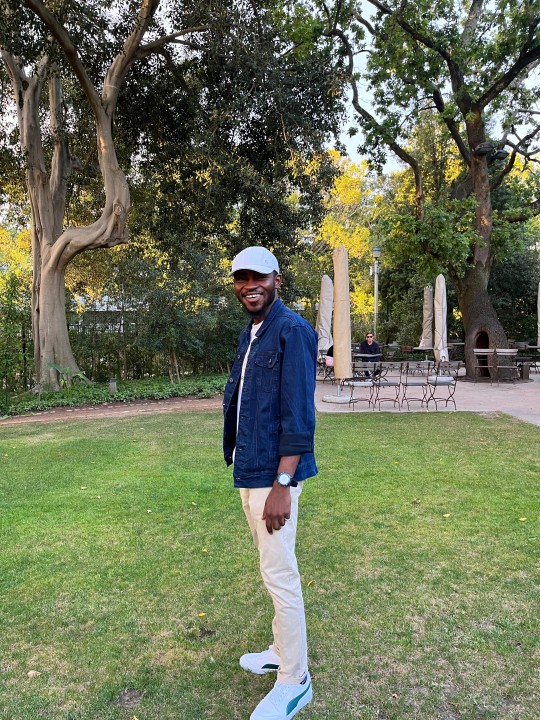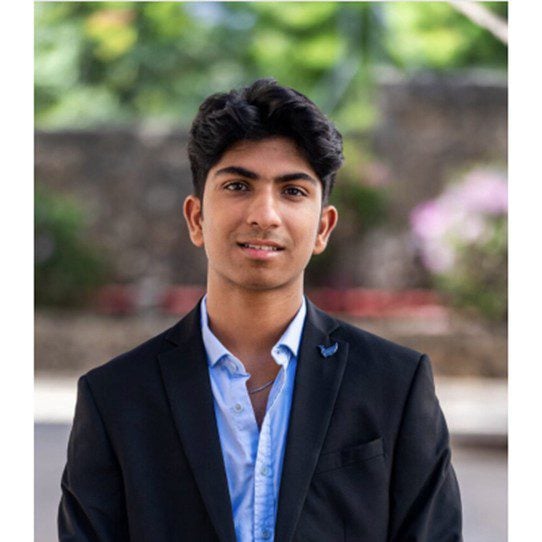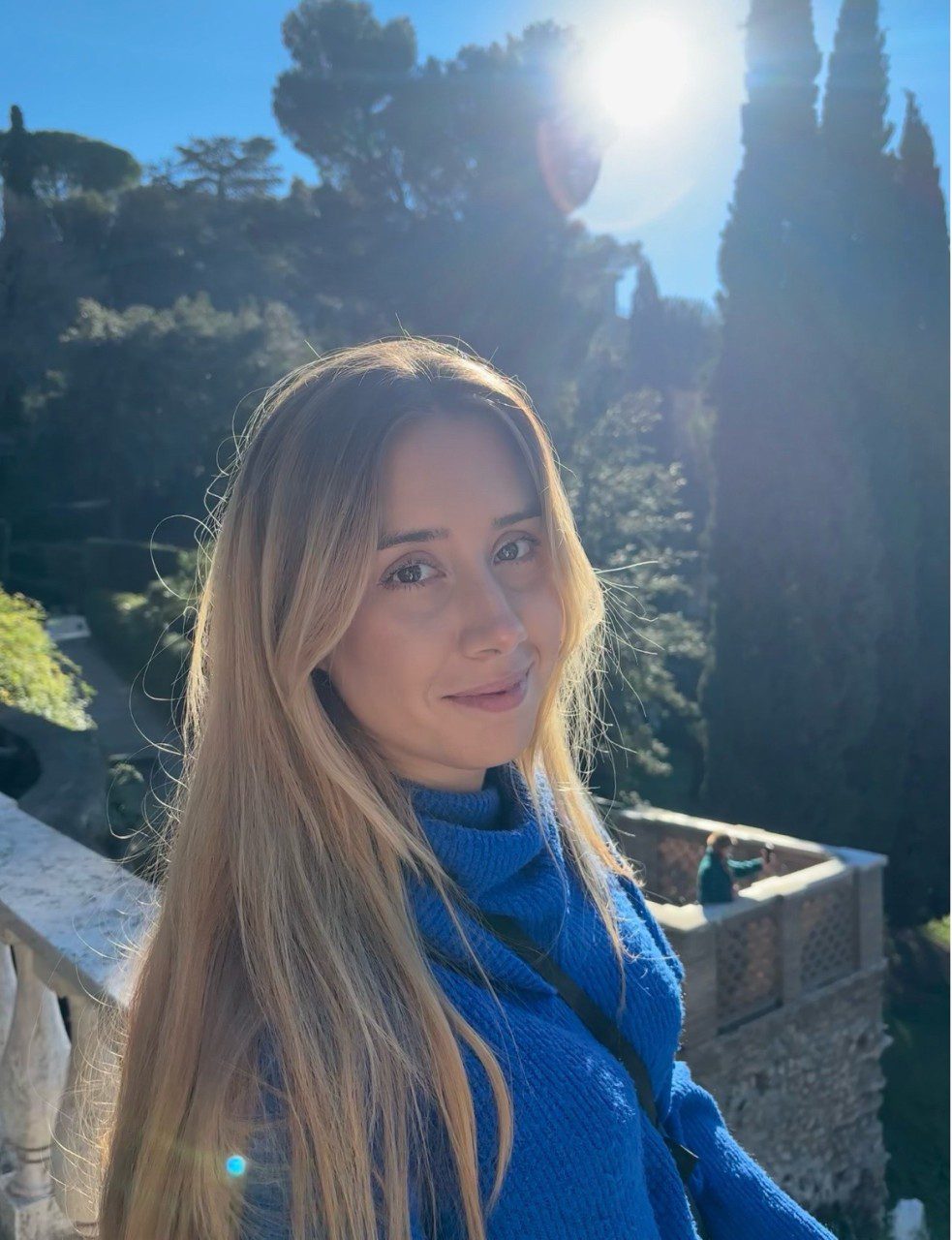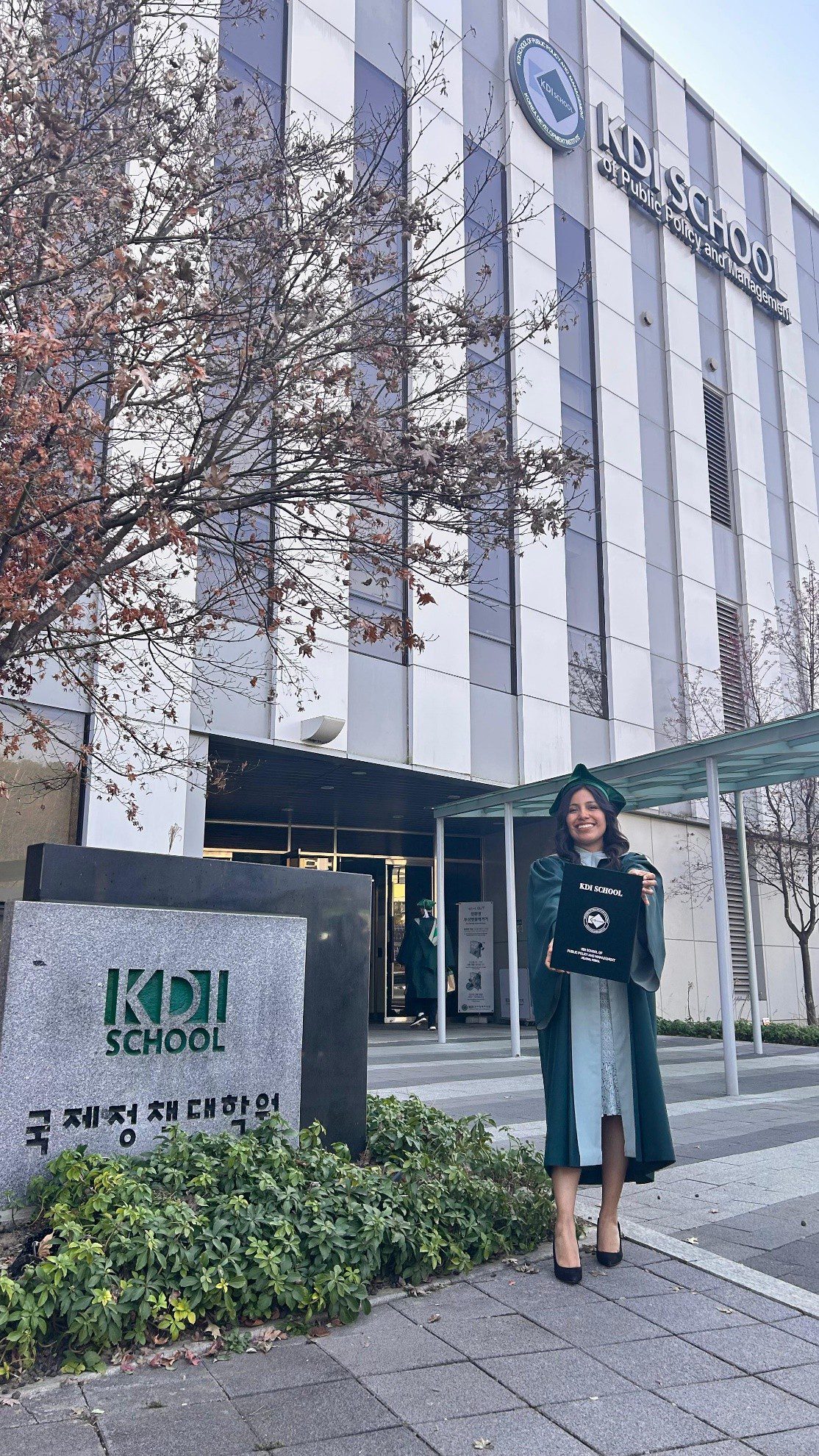How a Nigerian Researcher Secured the Dean’s Doctoral Scholarship to Pursue a PhD in Vaccinology and Immunotherapeutics at the University of Saskatchewan
University: University of Saskatchewan
Degree: PhD in Vaccinology and Immunotherapeutics
Previous Education: MSc in Molecular Biology – Stellenbosch University; BMLS – Usmanu Danfodiyo University
Scholarship: Dean’s Doctoral Scholarship, NSERC-CREATE OHAP Fellowship, School of Public Health Scholarship – Fully Funded (Combined Scholarships)
Other Offered Scholarships (if any): DAAD In-Region/In-Country Scholarship; Commonwealth Scholarship; Multiple Travel Grants and Fellowships
Social Media
LinkedIn: linkedin.com/in/maarufshamsuddeenyusuf/

The Journey
My name is Shamsuddeen Yusuf Ma’aruf, and I am driven by a deep passion for education and research, particularly in pathology and vaccine development. My mission is to make a meaningful impact in often overlooked communities by advancing healthcare through health tech and biotech innovations. I am currently pursuing a PhD in Vaccinology and Immunotherapeutics at the University of Saskatchewan, Canada, a journey that builds on my commitment to improving health systems, especially in underserved regions across sub-Saharan Africa. Through my work, I aim to bridge the gap between cutting-edge scientific advancements and real-world healthcare needs, ensuring that no community is left behind. In summary, I am an educator, researcher, and entrepreneur with an interest in SDGs 3 and 4.
Scholarship Details
I have been fortunate to receive multiple scholarships, fellowships, and grants in recognition of my academic achievements, research potential, and entrepreneurial initiatives. Below are some of the most notable awards I’ve received:
- Dean’s Doctoral Scholarship, University of Saskatchewan (2025)
CAD 24,000 – Awarded to outstanding international doctoral students. - NSERC-CREATE One Health Against Pathogens (OHAP) PhD Fellowship (2025)
CAD 11,000 – Fellowship supporting interdisciplinary doctoral research in One Health. - School of Public Health Scholarship, University of Saskatchewan (2024)
CAD 6,000 – Awarded to support graduate students in public health-related research. - Vaccinology and Immunotherapeutics Programme Travel Award (2024)
CAD 600 – Funding to support travel for participation in a TB symposium in the U.S. - Bill & Melinda Gates Foundation Global Health Travel Award (2024)
USD 2,500 – Awarded to attend the Keystone Symposium on TB in the U.S. - BactiVac Catalyst Training Award (2024)
€3,000 – Awarded to support training in bacterial vaccinology in Germany. - VALIDATE Network Travel Grant (2024)
€3,000 – To attend a conference in Thailand on vaccine development. - Tony Elumelu Foundation Entrepreneurship Seed Grant (2024)
USD 5,000 – Seed funding awarded to innovative African entrepreneurs. - 3rd Position – Falling Walls Lab Cape Town (2023)
ZAR 8,000 – Recognized for presenting impactful scientific ideas. - Open Access Publication Fund – VALIDATE Network (2023)
USD 1,200 – To support open-access publication of research findings. - Harry Crossley Foundation Research Grant, Stellenbosch University (2022)
ZAR 40,000 – To support MSc-level research on immunomodulatory nanoparticles. - Overseas Conference Grant – Postgraduate Office, SU (2022)
ZAR 10,000 – Funding to support international conference travel. - Scientific Travel Fund – Faculty of Medicine & Health Sciences, SU (2022)
ZAR 20,000 – Conference travel support for outstanding postgraduate researchers. - 2nd Runner-Up – Student Participation Award, AfinMic Microscopy Workshop (2022)
USD 100 – Awarded for active engagement in scientific training. - DAAD In-Region/In-Country Scholarship (2021–2023)
Fully funded MSc in Molecular Biology at Stellenbosch University, supported by the German Government. - Commonwealth Scholarship (2021–2023)
Full funding to pursue an MSc in Leadership Practice – Healthcare Improvement at Lancaster University Management School, UK. - Global Excellence Scholarship – University of Exeter (Declined) (2021)
Offered to pursue an MSc in Medical Mycology. - 2nd Runner-Up – Hack the COVID-19 Crisis Hackathon, NITDA (2021)
USD 280 – For innovative digital health solutions during the pandemic. - Best Graduating Student Recognition, MLSCN (2018)
₦150,000 – For emerging as the best graduating student in Medical Laboratory Science.
Educational Background
I hold an MSc in Molecular Biology (with distinction) from Stellenbosch University, South Africa, where my research focused on the impact of lipid nanoparticles on macrophage responses during tuberculosis infection. This project provided a strong scientific foundation for my current PhD studies, particularly in the area of immunology and vaccine research.
Prior to that, I earned a Bachelor of Medical Laboratory Science degree (also with distinction) from Usmanu Danfodiyo University, Nigeria. My undergraduate training emphasized pathology, immunology, and infectious diseases, which helped shape my academic and research interests.
These academic experiences, combined with a consistent record of academic excellence, significantly contributed to building a competitive profile for scholarship opportunities. In addition, I hold a Professional Diploma in Education and another MSc in Leadership Practice – Healthcare Improvement from Lancaster University Management School, UK. Together, these qualifications reflect both my technical expertise and my commitment to leadership and innovation in global health.
How Did You Prepare to Apply to the University of Saskatchewan?
Firstly, being on the right platforms (such as Twitter and LinkedIn) and following the right handles (people that share opportunities) and attending various information sessions (webinars or seminars). Gathered supporting documents, e.g., academic transcripts, CV, reference letters/referee lists, and have a draft of essays.
Compared to many students, one of my standout strengths in preparing to apply to institutions was my overall profile, particularly my research work and extracurricular activities, including voluntary work and participation in massive online courses. These aspects helped me distinguish myself from other applicants.
While many candidates prepare for standardized tests such as the GRE, GMAT, TOEFL, or IELTS, I made a conscious decision not to take these exams. I believed that my profile, academic record, and research experience were strong enough to support my applications without them. For English proficiency requirements, instead of taking tests like TOEFL or IELTS, I provided institutions with an official letter from my previous university confirming that the medium of instruction was English. This approach worked for many applications, although it did impact some scholarship opportunities, such as the Erasmus Mundus program, which required standardized English test scores. Nevertheless, I was still able to secure other scholarships despite this.
In addition to showcasing my academic merit and research publications, I also actively reached out to principal investigators (PIs) and faculty members who showed interest in supervising me. Their guidance and support during the application process were invaluable. Another critical preparation step that many candidates overlook is securing strong reference and recommendation letters. From early on, both during my undergraduate and MSc studies, I made a point to build good relationships with my lecturers and supervisors. I ensured they were aware of my academic activities and achievements so that when the time came, they could write detailed and supportive recommendations. This proved to be a vital factor in my successful applications.
In summary, my preparation focused on building a strong, well-rounded profile; engaging directly with faculty; and cultivating meaningful relationships for references, all of which helped me succeed in applying to various institutions.
How Did You Prepare to Apply for the Scholarship?
Similarly to how I prepared to apply to various institutions, my approach to scholarship applications was quite similar. However, to be more specific, one key aspect that contributed to my preparation was ensuring that my CV, personal statement, statement of purpose, and motivation letters were all carefully tailored to align with what each scholarship was looking for.
One thing many applicants overlook in their application documents is the importance of being as specific as possible. I used the STAR (Situation, Task, Action, Result) and SMART (Specific, Measurable, Achievable, Relevant, Time-bound) approaches to make my statements clear and impactful. Many students tend to be too generic, which makes their applications less compelling. For me, I made sure that every document reflected and reinforced the others; my CV, motivation letter, and recommendation letters all told a connected story about my profile and goals.
Regarding recommendation letters, I always ensured that the referees fully understood my profile and achievements. That’s why, from my undergraduate studies through my MSc, I consistently engaged with my lecturers and supervisors, keeping them well-informed about my academic and professional activities. This relationship-building helped them write strong, personalized letters of recommendation.
Leadership experience also played a significant role in my scholarship applications. Leadership doesn’t necessarily mean holding formal positions; inspiring and motivating others toward a goal is equally important and valued by scholarship committees.
Finally, storytelling was a crucial part of my preparation. Effectively communicating my motivations, goals, and life mission helped me present a compelling case to the scholarship panels. These are some of the key strategies that helped me prepare successful scholarship applications.
What Do You Think Made Your Application Stand Out?
I believe what made most of my applications stand out is the intersection of my academic excellence, real-world healthcare experience, and leadership in innovation. For example, a student without professional or significant research experience may find it harder to compete with someone like me who has both. I have seen many students progress through degrees, from undergraduate to MSc to PhD, but without applicable labor market experience. When they finish their studies, they often struggle to compete with candidates who already have research or professional experience. This lack of experience can limit their opportunities.
That’s why I always encourage candidates to pursue internships or voluntary experiences during their studies to build their CVs and gain practical skills.
For me, the combination of academic excellence, hands-on healthcare experience, and leadership in innovation has been key. I am also the founder of a health-tech startup in Nigeria, D'Health Rides Synergy Nigeria Limited, and a volunteer digital health researcher with Innovate Health Africa. These roles have further strengthened my profile.
Moreover, I can clearly demonstrate how my work addresses critical gaps in healthcare. Whether through academic achievements, professional work, or leadership and innovation, all my activities are interconnected and focused on healthcare. There is a clear alignment between my academic pursuits and my professional and research experiences, which makes my profile cohesive and strong. In addition to my academic and professional background, I have also prioritized building strong networks and collaborations. Throughout my academic journey, I have sought out mentors and connected with principal investigators and experts in my field. These relationships have provided invaluable guidance, support, and opportunities for collaboration, which have further strengthened my applications and career development. I also actively participate in conferences, workshops, and seminars, both as an attendee and presenter. These engagements allow me to stay updated with the latest scientific developments, share my own research findings, and expand my professional network globally.
Furthermore, I continuously invest in my personal development by enrolling in relevant online courses and certifications, particularly in leadership, project management, and digital health innovation. These efforts have enhanced my skill set and demonstrated my commitment to lifelong learning and adapting to the evolving healthcare landscape.
Altogether, these strategies have helped me to not only prepare competitive applications but also position myself as a well-rounded candidate capable of contributing meaningfully to my field and the communities I serve.
What Would You Have Done Differently if You Were Going Through the Process Again?
If I were to go through the entire scholarship and admission process again, there are several things I would do differently, placing even greater emphasis on certain areas. First and foremost, I would invest more time and effort into early and consistent networking with potential supervisors, research communities, and experts in my field. From my experience, building strong professional relationships early on can provide invaluable guidance, open doors to collaboration, and significantly strengthen an application.
Additionally, I would focus more on working closely with my lecturers and supervisors throughout my studies. I have realized how much their support, awareness of my activities, and recommendation letters have helped me, and I would dedicate even more energy to cultivating these relationships. Proactively engaging with them and keeping them informed about my academic and professional progress would be a priority.
One key area I felt I somewhat neglected was seeking mentorship for my application materials. I didn’t fully utilize the opportunity to get second opinions or constructive feedback from mentors or experienced colleagues on my CV, personal statements, or statements of purpose. Although I had some mentors, I did not actively involve them in reviewing my applications. In hindsight, involving mentors more deeply in this process could have provided valuable insights and improved the quality of my submissions.
Moreover, I would consider preparing for and taking standardized tests like the GRE or GMAT. While I remain confident in my English proficiency, validated through my medium of instruction letters, I believe that engaging with tests focused on quantitative reasoning and analytical skills could have further strengthened my profile. Preparing for such exams would not only have enhanced my application but also improved my critical thinking and test-taking skills, which are valuable beyond admissions.
Overall, these reflections highlight areas where I could have put in a more focused effort to maximize my chances of success. By emphasizing early networking, stronger mentor engagement, closer collaboration with supervisors, and strategic test preparation, I believe I could have further optimized my scholarship and admission applications.
What Advice Would You Give Those Looking to Apply for a Similar Scholarship?
My advice for prospective applicants is to be strategic and intentional throughout the process. They should be as specific as possible and ensure that their career path, whether professional or academic, is consistent and coherent. This uniformity makes it easier to tailor their application to the particular scholarship or program they are applying for. For example, if someone’s background is in microbiology but they suddenly present experience in accounting, it creates a disconnect that can weaken their application.
Applicants should tailor every part of their application, from their CV to their personal statement, so it clearly aligns with their specific goals and the values of the scholarship. Most importantly, I recommend using concrete examples to demonstrate achievements and potential, employing methods like the STAR approach (Situation, Task, Action, Result) to tell compelling and authentic stories.
It is also crucial to invest time in cultivating strong relationships with referees, supervisors, or line managers at work or academic institutions. They need to know your strengths and aspirations well enough to write personalized and persuasive recommendation letters. Also, take financial risks, sometimes spend for the sake of your application, e.g., paying for an application fee when there are no waivers, etc.
Additionally, applicants should not underestimate the value of relevant professional and voluntary experiences, including participation in online programs, webinars, or in-person events, as these significantly strengthen a profile.
Lastly, maintaining resilience and persistence is essential. Rejection is common in any competitive application process and does not reflect your worth. It’s all about persistence and being deliberate in your efforts. Each attempt brings you one step closer to success.
With this, I wish everyone reading through this the very best. Thank you.
Want to submit your
scholarship journey?
Submit Your Story Here!
More Scholarship Recipients

My name is Arsh Dharani, and I am an international student originally from the Democratic Republic of the Congo (DRC). I am .... Read more

Hi! My name is Arawa. I’m a Marie Skłodowska-Curie PhD researcher working on AI-based neuroimaging biomarkers for Parkins .... Read more

Hello! My name is Alexandra Eras, and I am from Ecuador. I studied Economics and completed a major in Gender, Violence, and .... Read more

Leave A Comment